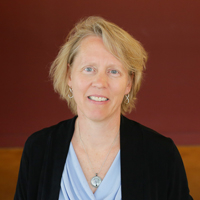Although Most Computer Science Doctoral Students Earned Their Undergraduate Degree in a Computing Field, One Quarter Earned Their Degree in Another Field

In this infographic, CERP examined the fields of undergraduate degrees earned by students seeking a doctoral degree in computer science to understand academic pathways into doctoral computer science programs. Using data collected from the CRA Data Buddies Survey, CERP selected a sample of graduate students earning a doctoral degree in computer science at the time of the survey. If doctoral students had previously earned a terminal master’s degree, they were removed from the sample.
As shown in the bar chart, 41% of computer science doctoral students earned their undergraduate degree in computer science, followed by 26% earning their undergraduate degree in a computing-related engineering field (e.g., computer engineering; see notes for full list). Less than 10% of the sample came from other computing-related and engineering fields. Surprisingly, 25% of the sample earned their undergraduate degree in a non-computing or other field such as arts and humanities. Although these data do not explore students’ motivations for pursuing computer science, this infographic highlights different, and perhaps unexpected, pathways into the computer science doctoral degree.
Notes:
Survey respondents were asked “In which field did you earn your most recent undergraduate degree?” with 21 response options. For the purpose of this analysis, some undergraduate major options were grouped together: “Computer/software/electrical engineering” included computer engineering, software engineering, electrical and computer engineering, and electrical engineering and computer science; “Information technology/systems” included information technology and computer information systems/informatics; “Interdisciplinary, specialized, or other computing-related” included bioinformatics/computational biology, computing and business, data science/data analytics, game design, and other computing & technology field. Due to survey error, mathematics major was not collected through this question and is likely reflected in the “something else” category.
 This analysis is brought to you by the CRA’s Center for Evaluating the Research Pipeline (CERP). CERP provides social science research and comparative evaluation for the computing community. Subscribe to the CERP newsletter here. Volunteer for Data Buddies by signing-up here.
This analysis is brought to you by the CRA’s Center for Evaluating the Research Pipeline (CERP). CERP provides social science research and comparative evaluation for the computing community. Subscribe to the CERP newsletter here. Volunteer for Data Buddies by signing-up here.
Are you interested in learning more about this topic in future infographics? Let the CERP team know by using their contact form.
This material is based upon work supported by the National Science Foundation under grant numbers CNS-1246649, DUE-1431112, and/or DUE-1821136. Any opinions, findings, and conclusions or recommendations expressed in this material are those of the author(s) and do not necessarily reflect the views of the National Science Foundation.









